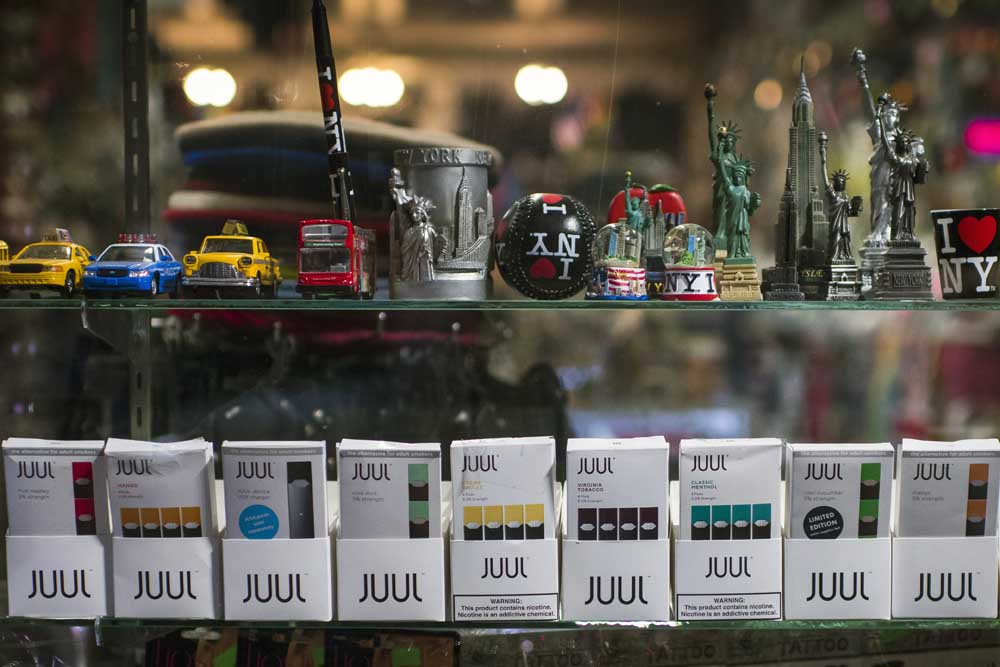Juul to stop selling most of its flavors
Published 12:00 am Wednesday, November 14, 2018

- The use of tobacco products has surged among young people, driven by the growth of e-cigarettes, which has countered the declining use of such products among young people in previous years, the CDC found.(Joshua Bright/The New York Times, file)
WASHINGTON, D.C. — Facing mounting government pressure and a public backlash over the epidemic of teenage vaping, Juul Labs announced Tuesday it would stop selling most of its flavored e-cigarette pods in retail stores and discontinue social media promotions.
The decision by the San Francisco-based company, which has more than 70 percent of the e-cigarette market share in the United States, was made as the Food and Drug Administration moved forward with a plan to ban sales of flavored e-cigarettes in convenience stores and gas stations. The agency was expected to announce its formal plan, which included stepping up the requirements for age verification of online sales of flavored e-cigarette products, later this week.
Trending
Recently, the FDA has mounted an aggressive campaign against the major manufacturers of vaping products that appeal to youths, focusing particularly on Juul. The company’s sleek product resembles a flash-drive and has flavors like creme and mango, leading public health officials to criticize the company and others for appearing to market directly to teenagers, who are vulnerable to nicotine addiction.
“Our intent was never to have youth use Juul,” Kevin Burns, chief executive of Juul Labs, said in a statement emailed to reporters. “But intent is not enough. The numbers are what matter, and the numbers tell us underage use of e-cigarettes is a problem.”
Critics and public health advocates said the company had no choice, especially after the FDA raided its headquarters last month seeking documents related to marketing.
Caroline Renzulli, a spokeswoman for the Campaign for Tobacco-Free Kids, called Juul’s announcement too little too late.
“Now that it has captured 75 percent of the e-cigarette market, Juul no longer needs to do social media marketing because its young customers are doing it for them,” she said.
The FDA acknowledged this year it had been caught off-guard by the soaring popularity of vaping among minors. In September, it gave Juul and manufacturers of a few flavored e-cigarettes and vaping products 60 days to submit plans to prove they could keep them away from minors.








